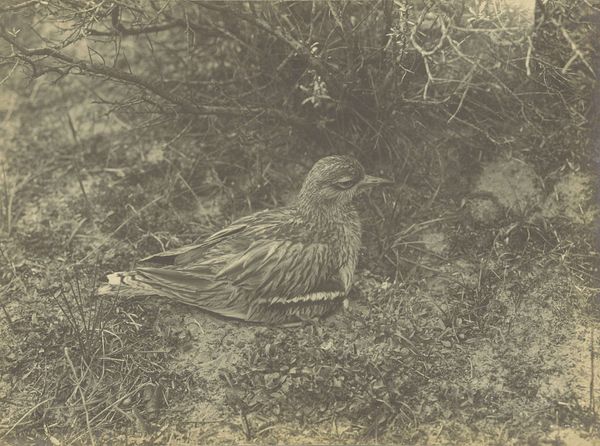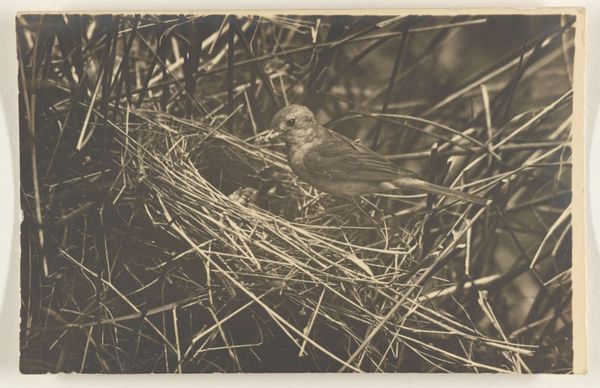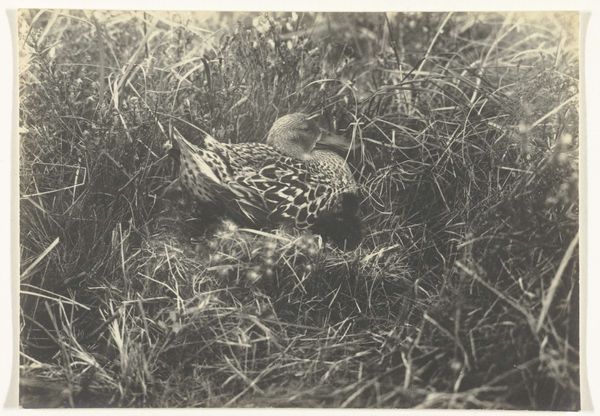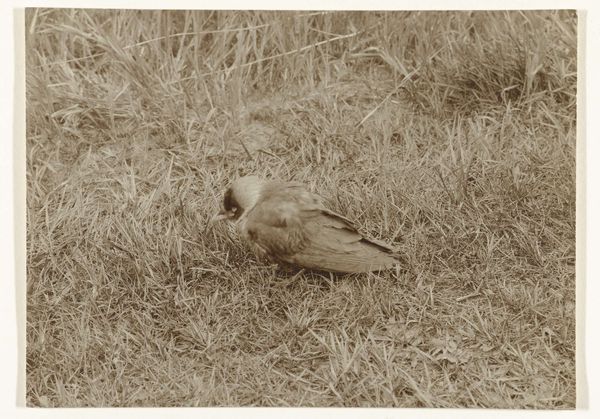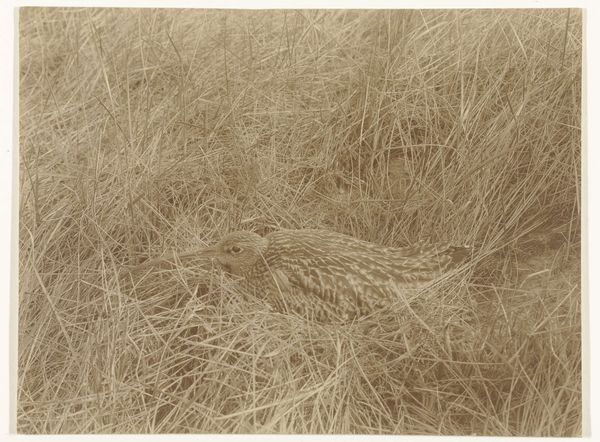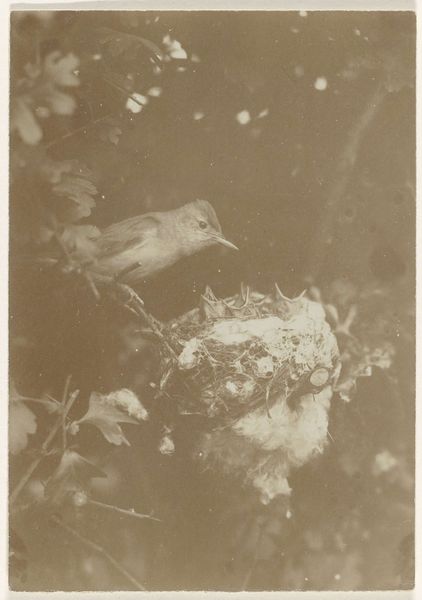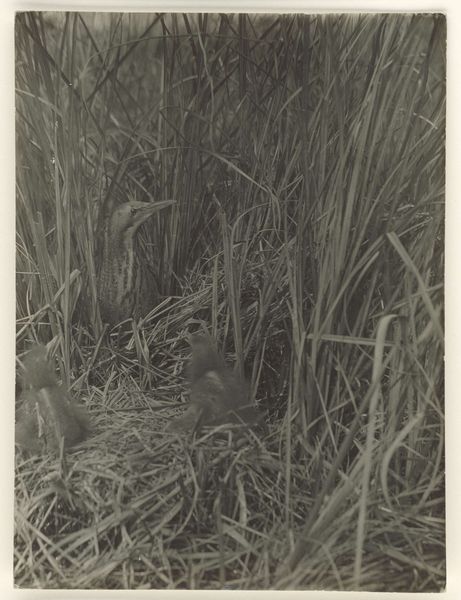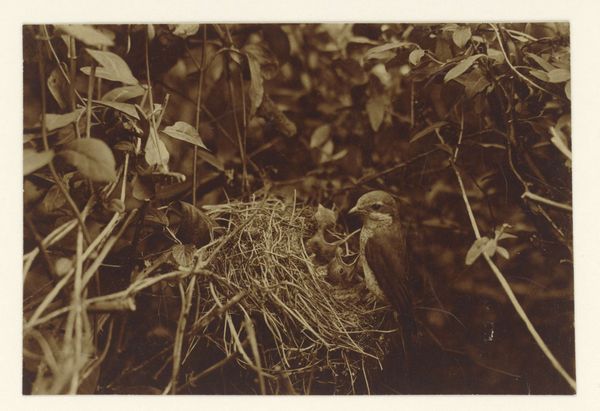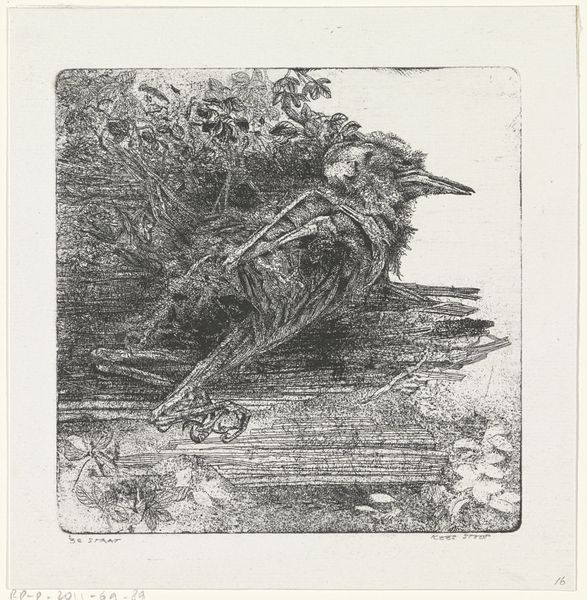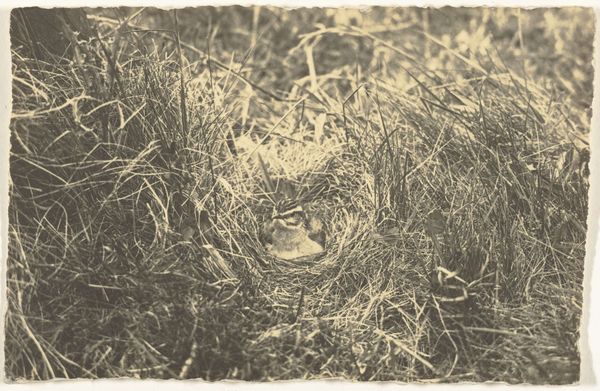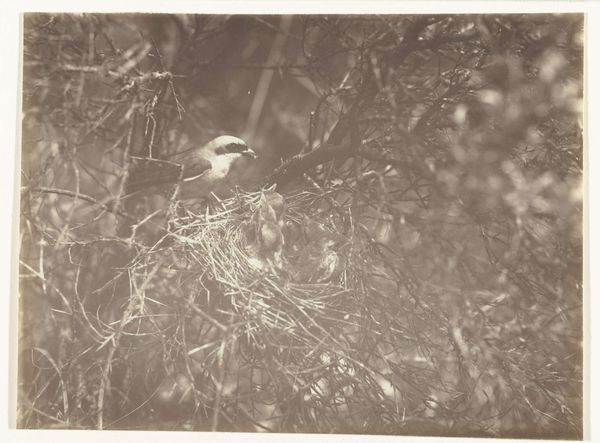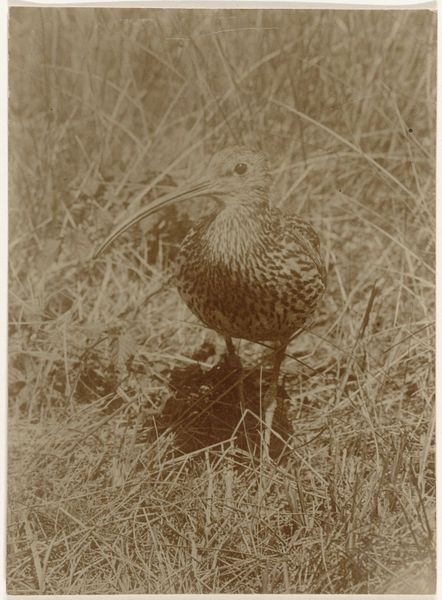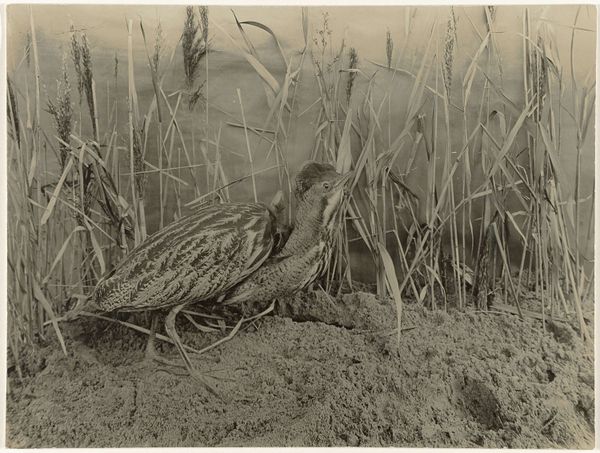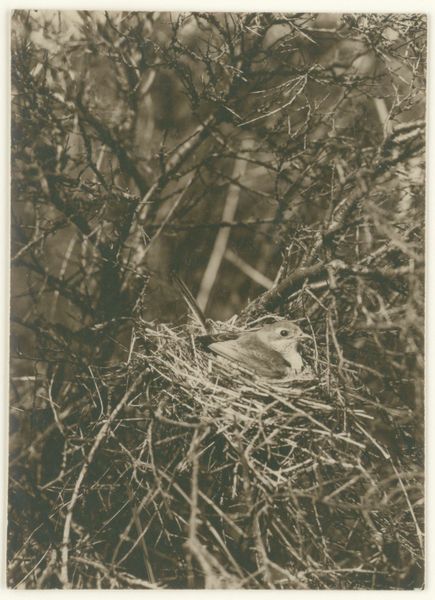
#
photo of handprinted image
#
rippled sketch texture
#
natural shape and form
#
toned paper
#
light pencil work
#
pencil sketch
#
old engraving style
#
etching
#
ink colored
#
watercolour illustration
Dimensions: height 156 mm, width 218 mm
Copyright: Rijks Museum: Open Domain
Richard Tepe made this gelatin silver print of a brooding stone-curlew in the Dutch dunes. He works in subtle tones here, a harmony of beiges and browns, as if the bird and its nest are slowly emerging from the landscape, or maybe slowly sinking back in. The surface has a slight sheen, catching the light. It’s hard to tell exactly how Tepe achieved these delicate gradations; it feels like a secret held within the process of early photography itself. See how the speckled feathers on the bird's back create an amazing rhythm? It feels as though each feather is a little brushstroke, blending the bird and the nest almost seamlessly together. The bird’s eye, rendered with a sharp clarity, provides the focal point. This image reminds me of the work of another great animal painter, German artist Franz Marc. While Marc used bold colors and fractured forms to express the inner lives of animals, Tepe achieves a similar sense of empathy through quiet observation and careful attention to light and texture. It's a reminder that art is about seeing—really seeing—the world around us.
Comments
No comments
Be the first to comment and join the conversation on the ultimate creative platform.
